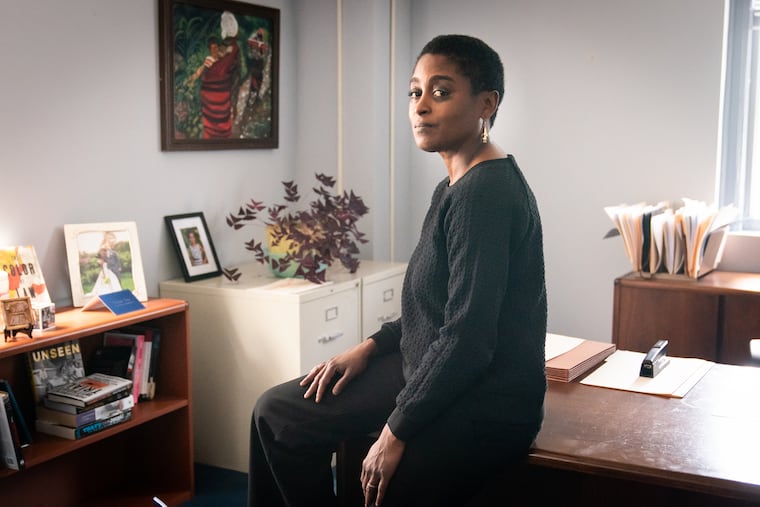Public Defender’s Office celebrates 90 years with its first fundraiser to help support new attorneys
The event will be held April 4 at the National Constitution Center, and Pa. House Speaker Joanna E. McClinton will be among the honorees.

Beneath the glamor and glitz of the Defenders Association of Philadelphia’s first gala to celebrate its 90th anniversary on Thursday is a serious matter: raising money to help the organization’s newest lawyers with professional costs such as moving and bar exam fees.
The fund is called the “Building the Next Generation of Defenders Fund.” Keisha Hudson, chief defender, says that indigent defense work pays some of the lowest attorney salaries in the legal field, leaving practitioners with high student loan debt and little money to deal with added expenses.
But for those who become public defenders, what the work lacks in salary it makes up for in mission — a passion for ensuring those accused of a crime get a defense even when they can’t afford to pay for one.
“The only person standing next to that client is the public defender.”
Since her own internship experiences while she was at Cornell Law School, Hudson decided to make a career in public defense despite the financial sacrifice. “What I got from those experiences were public defenders were, in my view, heroes.”
Hudson said criminal defendants are faced with the arsenal of the criminal system to prove them guilty — the police, the prosecutor, special state and federal agencies such as Homeland Security. “The only person standing next to that client is the public defender. I wanted to be the person with my background and my experiences and my understanding be the one to stand next to them and advocate for them.”
To the defense
By the end of the 1920s, seven out of 10 defendants were being tried in Philadelphia courtrooms without an attorney. When a judge decided a defendant did need an attorney, a lawyer was appointed on the spot from the courtroom. According to a history of the city’s Defender’s office, several attorneys launched the Voluntary Defender Association to provide free legal support in 1934.
When the United States Supreme Court, in Gideon v. Wainwright in 1963, decided indigent defendants had a right to free criminal representation, the Voluntary Defender Association assumed the role of the city’s public defender and its workload grew exponentially. In 1969, the association took on clients in the Juvenile Division of Family Court, two years after the Supreme Court said they, too, had the right to counsel.
Today, City Council provides about 90% of the Defender Association’s $62 million operating budget, making it the largest criminal legal defense organization in the state, and the fourth largest in the nation.
With public defenders representing about 70% of those arrested in Philadelphia each year, also means a large volume and heavy caseloads
“The volume here in Philadelphia is incredibly immense and our caseloads are high. They’re higher than the caseload the American Bar Association recommends,” Hudson said.
Retaining attorneys, especially after investing in their training, is critical.
But first we dance
While Philadelphia can counts itself one of state’s better supported public defender offices, starting salary for a new PD is only $64,000 which is $6,000 less than their counterparts at the District Attorney offices makes and a fraction of what a new attorney makes in private practice.
The list of to-dos to further improve the public defenders office is long, but for one night there will be song, food, and celebration.
The event will be held at the National Constitution Center and several honorees will be recognized including Speaker of the House and former public defender Rep. Joanna E. McClinton — who joined the defenders office directly out of Villanova Law School — and Rev. Michelle Anne Simmons, Founder and CEO of Why Not Prosper, a housing-first women’s reentry program.
And the next morning, the city public defenders will return to work.
“They chose to work here. They chose to come to the City of Philadelphia. We work with the city’s most vulnerable and I am really proud to lead this organization and work with people who have decided this is how they want to fulfill their careers,” Hudson said.
I